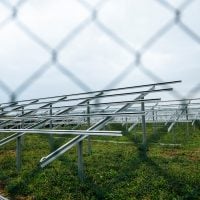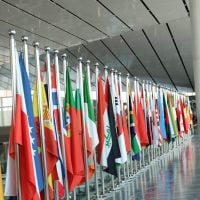Deadline: 17-May-21
SEI Asia, with support from the Swedish government (SIDA), launched the Strategic Collaborative Fund Phase 2 (SCF2) programme in 2018 to enhance the current 2030 Agenda efforts in Asia and the Pacific.
SCF2 aims to foster regional cooperation and policy dialogue for sustainable development and environmental sustainability, through capacity building, knowledge sharing and increased collaboration.
SCF2 welcomes concept notes for regional strategic events in Asia, specifically in South and Southeast Asia that highlight the advancement of environmental sustainability, gender equality, human rights and poverty reduction.
Goals
Addressing the dual issues of air pollution and climate change is directly relevant to the following SDGS goals and targets:
- Goal on good health and wellbeing, specifically to reduce death and illness from pollution
- Goal for sustainable cities and communities, specifically to reduce the environmental impact of cities and for affordable, safe and green transport for all
- Goal on climate action, especially to integrate climate change measures into national policies, strategies and planning.
Theme
Addressing air pollution and climate change
Focus Areas
Areas of focus can include:
- policy measures to operationalise the solutions identified in the 25 Solutions report, while also integrating gender, human rights and social equity considerations
- action to be taken on short-lived climate pollutants which consider gender, human rights and social equity impacts
- key stakeholders and policy actors for regional partnerships combating air pollution and climate change
- ways of supporting the implementation of the ASEAN roadmap on transboundary haze
- Policies that influence and nudge behaviour among polluters, beyond regulation and standards, e.g., market-based solutions, incentives, certification, taxation and duties, social marketing, etc
- all the above could integrate lesson-sharing and cooperation from successes in certain countries.
Funding Information
A maximum of SEK 450,000 (approximately USD 45,000) will be awarded per grant. The grants can fund one or more events in their entirety or provide supplemental funding to already confirmed co-funded event(s). The delivery period of event organization and impact monitoring must be within the timeframe of one year.
Regional Strategic Collaboration
- They invite proposals for a regional event that will consider inclusive pathways for combined efforts towards clean air and climate change policies in Asia. The event should include a variety of different stakeholders in the climate change and air pollution sectors, and should foster collaboration and engagement across these two sectors, as well as related sectors such as public health.
- The event focus should be on a regional scale (South East Asia), not just a single country, and should identify pathways for regional collaboration and policy actions to tackle the dual challenge and improve livelihoods.
Theme-specific criteria
The event proposal should meet the following criteria:
- Equitable and inclusive solutions to climate change and air quality: The event should clearly highlight the interlinkages between action on climate change and on air pollution, and identify clear pathways for multistakeholder action. It should ensure that gender, equity and human rights are cross-cutting themes at the centre of the agenda. The event will demonstrate solutions, innovations and good practices for addressing climate change and air pollution in ways that are also inclusive and equitable.
- Multi-stakeholder engagement: The event format should allow meaningful participation of a diverse array of stakeholders, such as population groups particularly exposed to pollution, researchers, NGOs and civil society groups, business sector and government representatives. It should also highlight how local partners have been involved in the event design process.
- Clear directions for policy influence: The event should have a clear pathway towards policy influence and policy outcomes (i.e. feeding into a larger regional or global platform for action). It can also identify initiatives and partnership programs that demonstrate good practices in managing air pollution and climate change, with consideration for gender, social equity and human rights implications, at a local scale.
- Integrated and context-specific approaches: The event should consider air pollution and climate change action in an integrated approach, exploring opportunities to address other SDG priorities in parallel, bearing in mind the particular needs of Asian countries and their policy environments.
Eligibility Criteria
The following can apply for the grant:
- Nonprofit organizations or networks that based in Asia can apply. Organizations outside the region can be considered if the proposed event addresses issues relevant to Asia and can engage regional stakeholders. They should:
- Have experience in hosting relevant policy dialogues that engage different groups and stakeholders.
- Feature key speakers and participants who are able to share knowledge and experience in environmental sustainability, while addressing cross-cutting issues of gender equality, human rights and poverty.
- Private sector players can apply, if their proposal seeks to engage with the public sector and/or civil society organizations. Funding cannot be used for covering private sector actors’ participation in the supported event (related travel and accommodation expenses). It should, however, be used to increase participation of other stakeholders such as civil society and the public sector. A cost-sharing option for micro and small enterprises with resource constraints can be considered.
- Organizations that are currently Sida’s grantees are not eligible to apply as the lead organization, but can be part of the consortium.
For more information, visit https://cdn.sei.org/wp-content/uploads/2021/04/call-for-concept-notes-air-pollution-and-climate-change.pdf









































